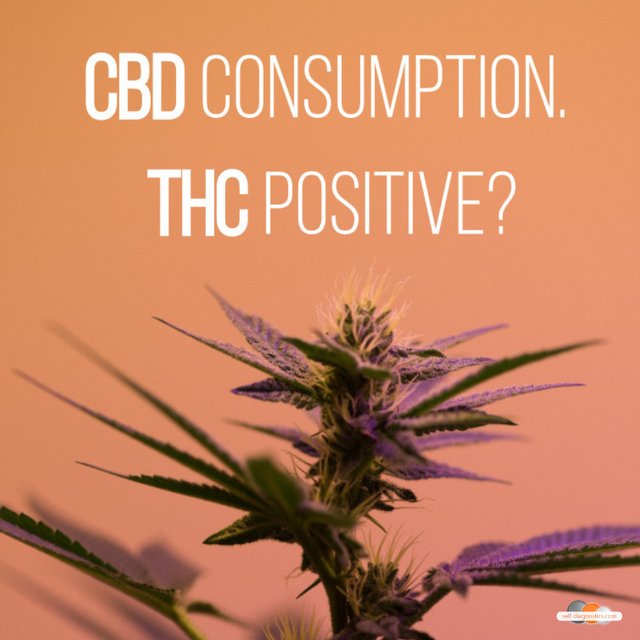CBD consumption. THC positive?

The potential benefits of CBD oil have gained more and more attention in recent years, and the number of studies performed on the matter has risen considerably. This trend can be observed by performing a simple search on Google Trends for “CBD”; the figures have doubled in the last year. But despite that, skepticism still surrounds CBD, given that - like THC – it is a component of the cannabis plant; research and clinical trials continue as studies seek to define the concrete benefits of this chemical.
THC (tetrahydrocannabinol) and CBD (cannabidiol) are two of the most well-known chemical compounds that are parts of the cannabis plant. They have a similar structure on an atomic level, but their effects and uses can be very different. THC is also the only substance belonging to the cannabis plant which is potently psychoactive. While TCH is responsible for prompting sensations, CBD is actually helpful in relieving all those symptoms. Besides that, studies have shown that CBD actually helps people that face different contemporary medical conditions like depression or anxiety.
Even though CBD is still a controversial substance, it has proven benefits in treating the following conditions:
- PTSD
- Seizures
- Schizophrenia
- Epilepsy
- Crohn’s Disease
- Inflammatory bowel disease
Conversely, THC can have some quite different effects:
- Appetite stimulation
- Detrimental effect on motor skills
- Muscle spasms
- Inducing sleep
- Anti-inflammation
- Reducing nausea
- Increased good mood
As substances rise in popularity, so do the number of questions surrounding them – especially those related to testing. There are some European countries where CBD consumption is legal under certain conditions, but within most countries a prescription is needed. Switzerland, for example, is the home of the world’s first tobacco-and-hemp cigarette, which can be purchased in supermarkets – it contains less than 1% THC and a high amount (10% – 20%) of CBD.
But the question many CBD consumers have is: will CBD-oil consumption lead to a positive THC test? The answer is conditional.
Does CBD-oil consumption lead to a positive THC urine test?
It doesn’t depend only on the test used, but also on the CBD product consumed. There are manufacturers that produce CBD products that are completely THC-free, whereas other products contain a slight amount of THC (enhancing some medical benefits). The tests in our range, for example, are designed to detect traces of THC, not CBD. Generally, in order to test positive for THC following the use of CBD oil, the amount of CBD oil would need to be extremely high. The urine drug screening test for THC and its metabolites is known to have very little cross-reactivity with other cannabinoids that are not psychoactive (like CBD).
Nonetheless, a consumer using extremely high daily quantities of CBD (1000 mg a day or higher) may be exposed to around 3 mg of THC per day, possibly enough to trigger a positive result during a drug screen.
Read the potential result of a hair analysis or a saliva test on www.self-diagnostics.com.